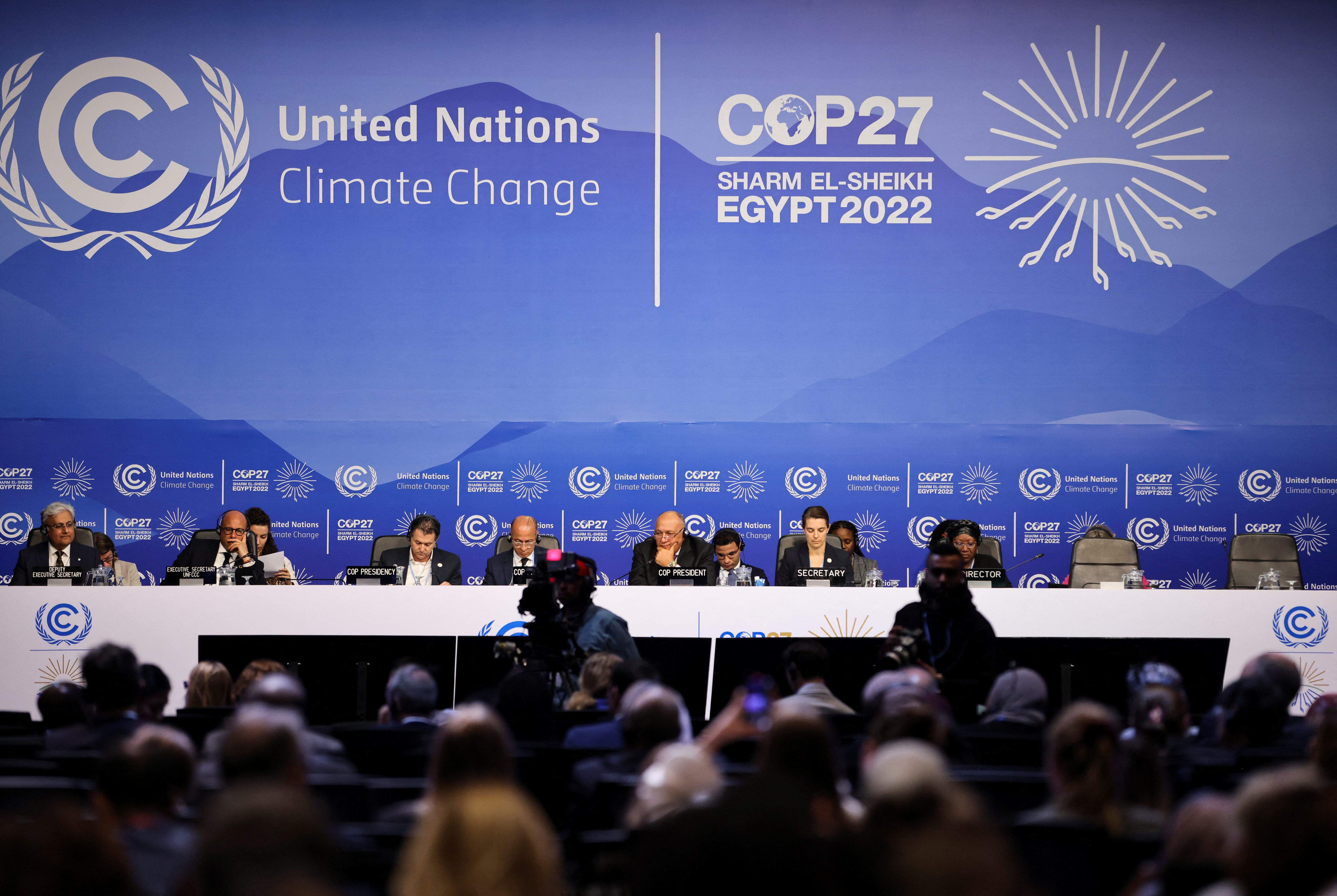The Past, Present, and Future of COP
Politics

0
COP27, the Conference of the Parties to the United Nations Framework Convention on Climate Change, was held in the Egyptian coastal city of Sharm el-Sheikh, from 6th to 18th, November 2022. According to the List of participants. Part one. Parties and observer States. There were 195 total parties and observer States, 1809 total observer organizations, and 948 media who took part in the conference. Based on the diversity of participating members, there have been numerous debates about different climate issues throughout the conference.
Before diving into the details of the recent conference, it is crucial to know what the COP is and review past COPs, noting several important decisions made in the past. All nations that are parties to the convention are represented at the COP. The parties review the implementation of the convention and any other legal instruments that the COP adopts, including institutional and administrative arrangements. The major duty of the COP is to review national communications and emission inventories submitted by the parties. By doing so, the COP assesses the effects of the measures taken by the parties and the progress made to achieve the ultimate objective of the Convention.
The COP is held every year unless the Parties decide not to do so. The first COP meeting took place in Merlin, Germany in March 1995. After that, the COP conference was hosted in various regions including Africa, Asia, Latin America, the Caribbean, and Europe, just like the way the COP presidency rotates among these five recognized UN regions.
Some of the most famous outcomes of past COPs are the adoption of the Kyoto Protocol and the Paris Agreement. The Kyoto Protocol was adopted by COP 3 of UNFCCC on 11th December 1997. The significance of the Kyoto Protocol is that it operationalizes the United Nations Framework Convention on climate change to limit and reduce greenhouse gas (GHG) emissions in accordance with agreed individual targets. Moreover, the protocol is based on the principles and provisions of the convention and follows its annex-based structure. It only binds countries that are already developed, because it recognizes that they are largely responsible for the current high levels of GHG emissions in the atmosphere compared to developing countries.
In comparison, the Paris Agreement was adopted at COP 21 in Paris, on 12 December 2015. It is a legally binding international treaty on climate change. Its main target is to limit global warming to well below 2, preferably to 1.5 degrees Celsius, compared to pre-industrial levels. For this goal, countries aim to reach global peaking of greenhouse gas emissions as soon as possible to achieve a climate-neutral world by mid-century. The significance of the Paris Agreement is that it is a landmark in the multilateral climate change process because, for the first time, a binding agreement brings all nations into a common cause to undertake ambitious efforts to combat climate change and adapt to its effects.
With such past meetings as precedents, the recent COP 27 made several trends clear. According to the Economist, the following are the five major takeaways of this conference. First, the need for funding for loss and damage was finally acknowledged by richer nations. Having in mind that developed nations have long avoided direct talks on financing loss and damage, COP27 was revolutionary, as the issue was officially admitted to the agenda for the first time. Second, fossil fuel interests are not going down without a fight. For years, several fossil fuel companies and Western governments have been visiting African countries to make them exploit the remaining fossil fuel reserves and export the energy to them, which resulted in some African governments pushing for an agreement that oil and coal will continue to play a crucial role in the continent’s energy mix in the short and medium term. With that in mind, the Sharm El-Sheikh Implementation Plan agreed by countries at the COP reflected the influence of fossil fuel lobbyists. Third, greenwashing will not be tolerated. Fourth, food systems and agriculture have finally come under scrutiny. And finally, the “implementation COP” did not live up to its name but momentum is building elsewhere.
There is no doubt that climate change is an international issue that requires multilateral efforts. Therefore, with the accomplishments of COP27, the world must continue fruitful debates for a healthier planet.
2022/11/27

Share
Naeyoung Park
Politics

Robinson Review Favorites
Songi Chai, Yubin Cho, Seohyun Jang..
Trending on Robinson Review
Contact Us





